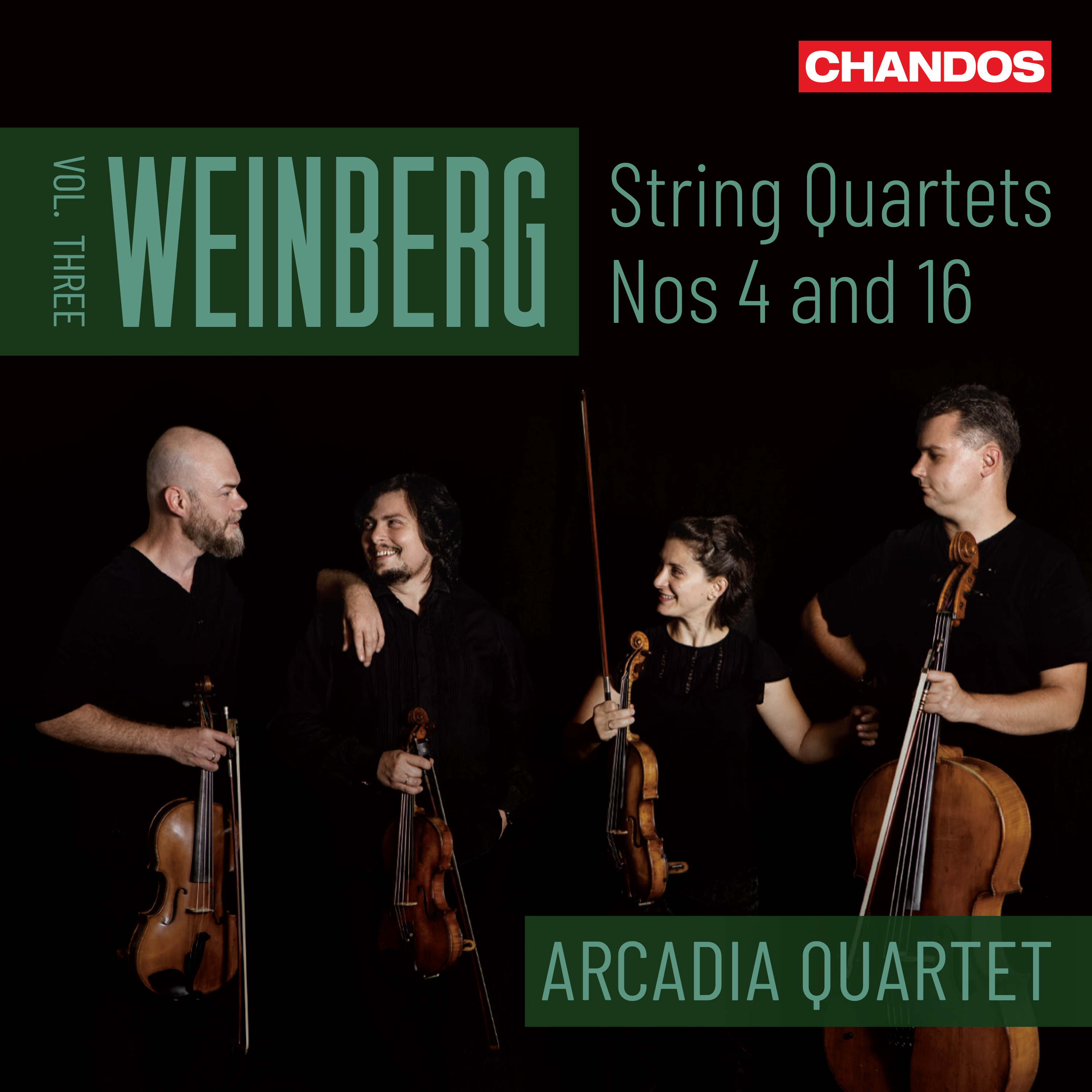WEINBERG String Quartets Vol 3 (Arcadia Quartet)
View record and artist detailsRecord and Artist Details
Genre:
Chamber
Label: Chandos
Magazine Review Date: 06/2023
Media Format: CD or Download
Media Runtime: 67
Mastering:
DDD
Catalogue Number: CHAN20180

Tracks:
| Composition | Artist Credit |
|---|---|
| String Quartet No. 4 |
Mieczyslaw Weinberg, Composer
Arcadia Quartet |
| String Quartet No. 16 |
Mieczyslaw Weinberg, Composer
Arcadia Quartet |
Author: Richard Whitehouse
The Arcadia Quartet continue their cycle of string quartets by Mieczysław Weinberg (previous volumes were reviewed in 3/21 and 5/22) with a coupling of two of the undoubted highlights, where any influence of those by Shostakovich or Bartók has been absorbed and transcended.
Second in a group of four quartets Weinberg penned later during the Second World War, the Fourth Quartet (1944) is his earliest masterpiece in this genre. A subtly ambivalent work, the quixotic manner of its opening Allegro commodo only obliquely prepares for the volatile aggression of its Scherzo then implacable rhetoric of its Largo marciale, before its final Allegro moderato attempts a synthesis of these conflicting moods that only arrives at the most tentative of resolutions. Somewhere between the unforced opulence of the Danel and tensile immediacy of the Silesian quartets, the Arcadia project this piece in all its searching emotion and deep underlying equivocation.
After a sequence of overtly experimental pieces, formally unpredictable and replacing tempo indications with metronome markings, the Sixteenth Quartet (1981) might seem a reaction in its recourse to four movements and an idiom redolent of the composer’s earlier music. Such appearances are inevitably deceptive: whether in the gradually subsiding declamation of its initial Allegro, scabrous agitation (or edgily whimsical Trio) of its Scherzo then the brooding desolation of its Lento, with a final Moderato whose lilting gait reduces to a vanishing-point of intense inwardness. Here the dedication to the memory of Weinberg’s sister Ester is made graphic and, even more than their rivals, the Arcadia’s response feels heart-rending in its pathos.
The close but never airless immediacy of the sound and detailed annotations by David Fanning readily enhance the performances. Those who have been following this cycle need not hesitate; anyone new to this music could hardly do better than begin here.
Discover the world's largest classical music catalogue with Presto Music.

Gramophone Digital Club
- Digital Edition
- Digital Archive
- Reviews Database
- Full website access
From £8.75 / month
Subscribe
Gramophone Full Club
- Print Edition
- Digital Edition
- Digital Archive
- Reviews Database
- Full website access
From £11.00 / month
Subscribe
If you are a library, university or other organisation that would be interested in an institutional subscription to Gramophone please click here for further information.




